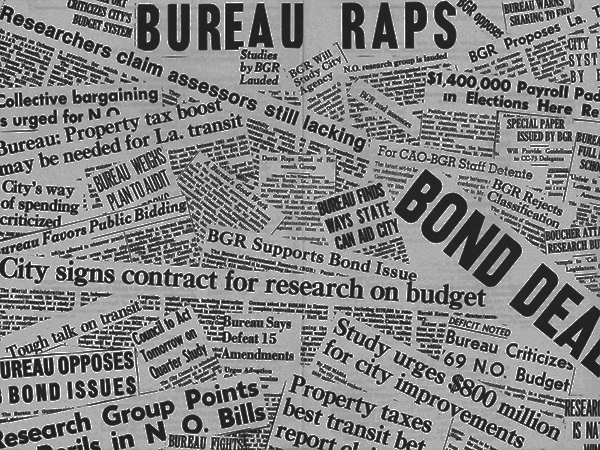
$9.8 million in property taxes up for renewal to fund Jefferson Parish bus service
By Drew Broach
Source: NOLA.com | The Times-Picayune
September 28, 2017
The government agency overseeing Jefferson Parish’s two bus systems is sitting on a big pile of cash: $21.2 million. And parish officials want more.
They’re asking voters Oct. 14 to renew two property taxes that fund the conventional fixed-route bus service and the Mobility Impaired Transportation System for elderly and handicapped people. Early voting begins Saturday (Sept. 30) and ends Oct. 7.
Regular buses
The conventional bus service relies on a property tax first levied in 1989 and renewed twice, each time for 10 years and most recently at two mills. The Parish Council has since rolled it back to 1.9 mills. If voters extend it another decade, through 2028, it would be back at two mills.
A two-mill tax costs $25 for the owner of a homestead-exempt property valued at $200,000. It costs the owner of a $500,000 business $150.
At 1.9 mills, the tax generates $6.5 million this year to help run 41 buses on 13 routes: seven on the West Bank and six in East Jefferson. That’s 52 percent of the revenue for the system.
The rest of the money comes from passenger fares ($1.50 per trip), federal grants and Louisiana state government. The average cost per passenger to operate the service is $5.46, according to the independent Bureau of Governmental Research.
Over the years, this system has built up a $13.5 million surplus. That’s huge by government standards, equivalent to 94 percent of annual expenses in the parish where the general goal of officials is a 13 percent fund balance.
The surplus is not likely to last, however. Parish officials told the Bureau of Governmental Research that they anticipate spending $3.3 million of it, along with federal grants, to replace all the buses by 2024. Further, they say the bus service draws upon its reserves to fund operations over the 10-year term of the property tax “because costs tend to climb while tax receipts remain relatively flat due to millage rollbacks,” the bureau said in a report issued Wednesday (Sept. 27).
Special transit
The Mobility Impaired Transportation System runs 17 small buses by appointment to elderly and handicapped people who call for a ride. It, too, relies on a property tax first levied in 1989 and twice renewed at decade intervals, most recently at one mill but rolled back by the Parish Council to 0.95 mills. If extended Oct. 14, the tax would be set again at one mill.
A one-mill tax costs $12.50 for a homestead-exempt property valued at $200,000. It costs $75 for a business valued at $500,000.
At 0.95 mills, the tax this year generates $3.3 million. That’s 86 percent of the system’s expenses. The rest of the revenue comes from fares ($3 per trip), federal grants and other sources, the Bureau of Governmental Research says. The average cost per passenger to operate the service is $41.25.
This service, too, has built up a big surplus over the years: $7.7 million. That’s 264 percent of annual expenses.
Parish administrators told the Bureau of Governmental Research they plan to budget $13.2 million a year from the surplus for 11 years to build sidewalks and curb cuts at many of the estimated 1,000 regular bus stops that now lack sufficient wheelchair access. That would cut the surplus to $440,000 by 2029.
The Bureau of Governmental Research recommends a yes vote on both tax renewals. Read the bureau’s full report and recommendations.
Fair Use Notice
This site occasionally reprints copyrighted material, the use of which has not always been specifically authorized by the copyright owner. We make such material available in our efforts to advance understanding of issues and to highlight the accomplishments of our affiliates. We believe this constitutes a “fair use” of any such copyrighted material as provided for in section 107 of the US Copyright Law. In accordance with Title 17 U.S.C. Section 107, the material on this site is available without profit. For more information go to: US CODE: Title 17,107. Limitations on exclusive rights: Fair use. If you wish to use copyrighted material from this site for purposes of your own that go beyond “fair use,” you must obtain permission from the copyright owner.
